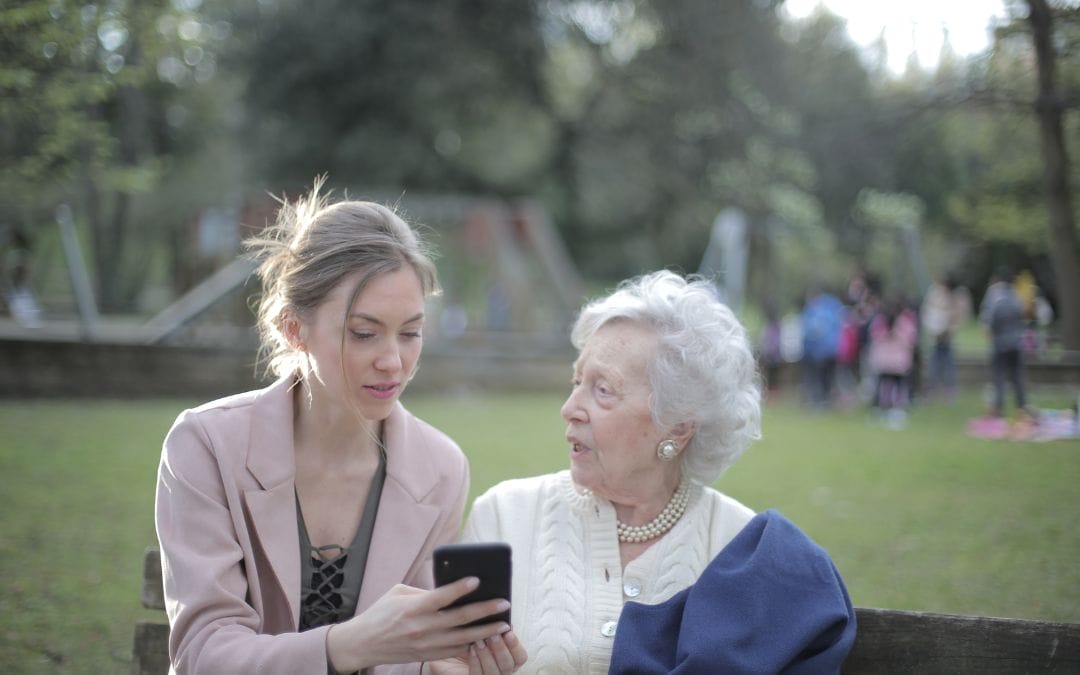According to a 2022 report from the Alzheimer’s Association, 83 percent of the care given to senior adults in the U.S. comes from a family member, and almost half of these caregivers look after someone with Alzheimer’s or dementia. This role is essential, but it can also be stressful—and if your parent or loved one just received their diagnosis, it’s often a scary transition for the whole family to navigate.
Knowing what to expect from the illness and how to support your loved one through it can be challenging as you navigate this new reality. But you don’t have to do it alone—the steps below will help you create a dementia care plan to ensure your loved one has all their needs met at each stage. This approach will take some of the stress off your shoulders too.
Establish a Consistent Daily Routine
When building out a dementia care plan, consistency is the best place to start. It’s crucial that your loved one feels secure and stable in their environment, and establishing a daily routine can help. You don’t want the pattern to be too rigid—as this can also cause anxiety—but having a basic structure in their day will relieve the agitation that comes with unpredictability. Create a schedule for meals, showers, dressing, medications, personal hygiene, hobbies, recreation, or other daily activities. And be sure to communicate with your loved one upfront if the routine needs to change for any reason.
Jot Down a List of Helpful Reminders
A daily to-do list is another convenient way to ensure your loved one knows what to expect each day. Assist them in writing down essential reminders like a doctor’s appointment, a relative’s birthday, an errand or outing, a special occasion, or an event they need to remember. Then keep this list in a visible spot, so your loved one can access it easily.
It’s also a good idea to jot these memos down on post-it notes and stick them in various places around the house to refresh your loved one’s short-term memory. This reinforcement could slow the pace of their cognitive decline.
Recognize Your Loved One’s Agency
In the early stages of a dementia care plan, allow your loved one to maintain their independence for as long as possible. As this illness progresses, they may lose the ability to express themselves and perform basic tasks independently. Include your loved one in conversations about their medical treatment and future living situation. Empower them to make decisions, then honor those choices as much as you can. Ask which activities interest them and create a routine around their preferences. Finally, let them attempt a task before rushing in to complete it for them.
Use Clear but Gentle Communication
Communicating with a loved one who has dementia can be tricky at times. On the one hand, you don’t want to talk down to them, but on the flip side, you want to ensure they can retain the message. This situation requires a delicate balance of clear but gentle communication. The more clarification you can provide in a soothing tone, the easier it will be for your loved one to process information. This approach can help to minimize your frustrations as well.
Seek Out Memory Care Professionals
No dementia care plan should be without memory care professionals’ assistance and emotional support. As a caregiver, it can feel like your loved one’s welfare hinges on the amount of time and effort you pour in—but this mindset is a recipe for burnout. All caregivers need a break to invest in self-care, restore energy and pursue their hobbies.
When you partner with memory care experts at Vineyard Senior Living, you won’t have to manage everything alone. You’ll also have access to professional guidance on questions like, “when is the right time to increase the level of treatment or transition into an assisted living community?”
Use these Tips to Create a Dementia Care Plan
If you have a parent or family member with dementia, it’s normal to feel unsure of where to turn for resources and information. If you want to be helpful but don’t know how to offer the proper support or assistance, these steps will make it easier to build an effective dementia care plan for your loved one. And be sure to contact Vineyard Senior Living to learn more about all our memory care options or find a support group for family members taking care of loved ones. If there isn’t a group available, we’ll refer you to a local support group that can help.

